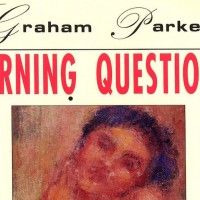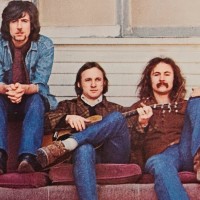The Hollies always seemed like a less dangerous version of the Beatles, and the Look Through Any Window DVD — pleasant though it no doubt is — only underscores that.
They often relied on the same rockabilly/R&B/early rock cover material, updated with the same shaggy haircuts, power-pop hooks, Everly-influenced harmonies and ringing guitars. But unlike their fellow British invaders in the Fab Four, or even in the Rolling Stones, the Hollies seemed less capable of moving beyond the quaint early charms of singles like “I’m Alive” (a British No. 1 that went nowhere stateside) and their belated U.S. Top 10 hit “Bus Stop.”
The Hollies tried their hand, albeit halfheartedly, at psychedelia. They did an on-the-nose all-Dylan album that sent Graham Nash — who already was evolving into a more modern singer-songwriter — dashing off for the newly formed Crosby, Still and Nash. They even scored a Civil Rights-themed hit with 1969’s “He Ain’t Heavy, He’s My Brother,” a surprisingly serious turn which featured a young Elton John on piano … but never fully explored protest songs. The truth is, in direct opposition to the times, the rather unserious Hollies were never really an album-rock band. They always seemed to settle back into comfy pop-single confection — and even that hot streak, often bolstered by a songwriting assist from future 10CC founder Graham Gouldman, eventually went cold.
The Hollies made a couple of attempts at a 1970s-era comeback, and it seems to me that the group faded away just as it was getting interesting: They may never have done something more nervy and memorable as Allan Clarke’s “Long Cool Woman,” a first-take CCR-influenced 1972 charttopper. (In fact, it might have been too raw. Most people still don’t think of that song as theirs.) Two years later, the Hollies hit again with the soaring, melancholic “The Air That I Breathe,” a track that seemed to be smartly advancing their sound. Then? Phfffft. Clarke eventually retired, leaving just guitarist Tony Hicks and drummer Bobby Elliott to carry on.
The Hollies — often more pretty sounding than necessarily interesting — eventually earned 2010 induction into the Rock and Roll Hall of Fame, recognition for having made the Top 20 almost 20 times. Yet, as Look Through Any Window winds down, the band still feels a little like an opportunity lost.
The two-hour Look Through Any Window: 1963-1975 DVD, issued earlier this month by Eagle Vision/Eagle Rock Entertainment, includes 22 complete performances by the Hollies, as well as new interviews with Graham Nash, Allan Clarke, Tony Hicks and Bobby Elliott.
- Nick DeRiso’s Best of 2015 (Rock + Pop): Death Cab for Cutie, Joe Jackson, Toto + Others - January 18, 2016
- Nick DeRiso’s Best of 2015 (Blues, Jazz + R&B): Boz Scaggs, Gavin Harrison, Alabama Shakes - January 10, 2016
- Nick DeRiso’s Best of 2015 (Reissues + Live): John Oates, Led Zeppelin, Yes, Faces + others - January 7, 2016




Wow, that’s an uninspired review of a very inspiring band. The video of the recording of On A Carousel was worth the price of the DVD alone, and time and time again we’re treated to delightful tracks on this release.
The Hollies are hugely important to British music, and this DVD is their most important release ever. I love it.